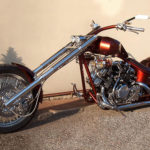Lightning was already blazing in the west. Hitler’s Germany, devouring helpless Europe, grew stronger like your pig on free beets. Vasily Ivanovich Lebedev-Kumach, a man of subtle mental attunement, felt the storm coming for a long time, but the words did not form into a single composition until June 22, 1941. The next day, the poems were ready and sent to the newspapers Izvestia and Krasnaya Zvezda, where they were published under the portrait of the Supreme Commander on June 24. Alexander Vasilyevich Alexandrov, having read the verse, immediately wrote the music. The musicians had to master the scores just as quickly, and the entire orchestra copied the notes hastily scribbled on a graphite board into their notebooks so that on June 26, 1941, at the Belorussky railway Station, the soldiers who were going to the front heard the “Holy War” for the first time. It is difficult to put into words the enthusiasm with which the soldiers accepted the song, the ensemble performed it over and over again, the melody went to the front with echelons of fighters, the menacing pace of the rhythm and the anxious nerve of the melody immortalized the “Holy War” on the very first day, later it began to be broadcast on central radio after the chimes struck at six o’clock in the morning, then- the whole great Motherland recognized her. Civilization has never created anything more epic, powerful, and profound, either before or since. Anticipating it, the great Levitan uttered in his great baritone the great phrase: “Our cause is just, the enemy will be defeated, victory will be ours.” But victory was still far away…
The German fascist boar and the Finnish kosoryl, who joined him, were already encircling Leningrad. Vasily Pavlovich Solovyov-Sedoy ignored the evacuation order until the last moment, working at the port, pulling logs that could have started a large fire. In the evening, after finishing work, he and his companions heard accordion and soft singing from the nearest ship. People sat down on logs, fascinated by the moment. Everything became very quiet, even the waves stopped whispering, only the accordion and voices came from the corvette. “Let’s sing, friends, because tomorrow we’ll go camping in the predawn fog.” To compose the words, Solovyov-Sedoy called his friend Alexander Churkin. The text came out unassuming and quite seafaring. And the song itself seemed to be rocking on the Baltic waves. Colleagues in the workshop began to hack the obvious masterpiece, but the soldiers and sailors liked the song so much that it was distributed through the bellows of front-line harmonies before the vinyl printing.
War is a cold, hungry and dirty hell. In field hospitals, doctors took a sip of alcohol and smoked a cigarette to kill the feeling of hunger. The infantry had no alcohol. When I was very young, I discovered a box with a soldier’s shag. I sniffed it and it made me cry. Grandpa laughed. He didn’t smoke at all, but he had to at the front. His hell was cold, hungry, and dirty. “Let’s have a smoke, comrade, one at a time.” Ilya Frenkel was a military reporter in the trenches, took a sip of “combat”, and accurately learned the price of a soldier’s shag. Claudia Shulzhenko took tobacco romance to the shelves. “Let’s smoke, my friend.” Modest Efimovich Tabachnikov wrote an unbearably beautiful pasadoble.
Nikita Vladimirovich Bogoslovsky recalled:
“Late one evening, the director of the film, Leonid Lukov, came to me and said, “You know, I can’t do a scene in a dugout without a song.” And he staged this song so amazingly, just like an actor, he played it, which did not exist yet, that a miracle happened. I sat down at the piano and played the entire melody of “Dark Night” without a single stop. This was the first (and obviously the last) time with me. once in a lifetime…”.
The movie “Two Fighters” would not have happened without the important landmark song “Dark Night”, which Mark Bernes lived. The first vinyl print turned out to be defective, because the tears of the cameraman girl got on the matrix.
Evgeny Dolmatovsky went through all the trenches of this terrible war, but it was he who noticed the pattern of street names, when each western one pointed to the next city to be occupied by the Red Army. Leonid Utesov added a verse with each new liberated city. “And the name is, really, a fighting one.”
Mikhail Yasen was in Vienna when a Russian soldier played Strauss on an out-of-tune clavichord, and the locals played along, pulling out violins and cellos. Yasen carried this memory through his life, his native Belarus was mutilated by the dehumanized Wehrmacht. “Come and see.” Yaroslav Evdokimov performed the “May Waltz” to the music of Mikhail Luchenka for the first time in 1985. Not only Ash, but also most of the front-line soldiers were still alive and in the ranks. And they weren’t thinking about revenge, but about their homes, where those who should be fighting for are waiting.
This strange Russian people is always mobilizing and represents a terrible, crushing force for an external enemy. If you want a cultural code and a bond, even those who have forgotten the exploits of Ushakov and Nakhimov know the achievements of Konev and Zhukov. And these songs became a part, the cement of that fist that smashed the Nazi bastard’s head. As you know, even without a head, a viper uses a sphincter. This means that we will have to raise the flag over the Reichstag again, but also, even more importantly, over the Pentagon. And then, you see, California will return to Russia, and Texas will join.












